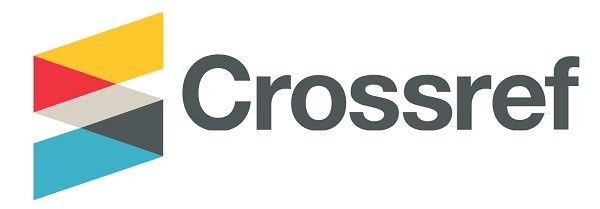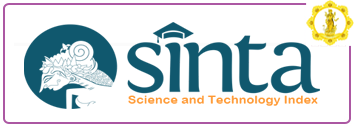Jurnal Penjaminan Mutu Corpus Thematic Analysis : Trends In Quality And Quality Assurance Research
DOI:
https://doi.org/10.25078/jpm.v6i2.1596Keywords:
Journal Of Quality Assurance, Quality Assurance, Research, Trends and IssuesAbstract
Research as a component of quality assurance serves as a venue to provide spaces for scholarly dialog among experts in bridging together aspects and elements that call for inquiry and debate. This study employs documentary analysis to effectively address the need of the research. Articles accepted and published in the Journal of Quality Assurance are downloaded, revisited, and analysed. Based on available online data, this study includes articles published from year 2018, covering publication issues after it was included in the list of the Asean Citation Index (ACI). In-depth scrutiny of data revealed three main arguments pertaining to inquiries of articles accepted and published in the journal: Quality Assurance in Education in Bountiful Quantity, From the Inner Psyche to the Social Systems of Humankind, and The Roles of Employers and Employees. The thrust of the journal in championing research works related to ‘quality assurance’ has been instrumental in contextualizing the concept of quality as applied in diverse fields of studies. The journal has served as a niche for scholars in advocating a community of practice where knowledge production is evident and scholarly approaches to research inquiries are manifested.
Downloads
References
Al-Shualbi, A. (2014). The importance of education. Retrieved June 12, 2020, from https://www.researchgate.net/publication/260075970_The_Importance_of_Education
Anapol, D. (2014). Why sex is sacred. Retrieved June 12, 2020, from https://www.psychologytoday.com/us/blog/love-without-limits/201408/why-sex-is-sacred
Australian Department of Education and Training. (2005). Professional learning in effective schools: The seven principles of highly effective professional learning. Retrieved June 12, 2020, from https://www.education.vic.gov.au/Documents/school/teachers /profdev/proflearningeffectivesch.pdf
Camacho, M.H., Valcke, M., & Chiluiza, K. (2017). Research based learning in higher education: a review of literature. Retrieved June 12, 2020, from https://www.researchgate.net/publication/315350991_reseach_based_learning_in_higher_education_a_review_of_literature.
Davies, R., London, C., Lascelles, B., & Conzemius, M. (2017). “Quality assurance and best research practices for non-regulated veterinary clinical studies,†BMC Veterinary Research, 13 (242), pp. 1 – 7.
Encyclopædia Britannica (n.d.). Social science. Retrieved July 5, 2020 from https://www.britannica.com/topic/social-science
Garwe, E. (2013). “Quality assurance in higher education in Zimbabwe,†Research in Higher Education Journal. Retrieved June 12, 2020, from https://eric.ed.gov/?id=EJ1064120.
Garwe, E. (2015), "Student voice and quality enhancement in higher education", Journal of Applied Research in Higher Education, Vol. 7 No. 2, pp. 385-399.
ISESCO (2016). The Role of Higher Education in the Development of Science and Technology for a Prosperous Future: Key Performance Indicators for Universities in Islamic Countries, ICMHESR-6/2012/2.4. Sixth Islamic Conference. Retrieved 22nd December, 2019 from https://www.isesco.org.ma/wp-content/uploads/2016/02/6cimc2.4.pdf.
Jacque, G. (1998). Functional reciprocity of organizational management and social work practice. Retrieved June 12, 2020, from https://journals.sagepub.com/doi/pdf/10.1177/ 002087289804100105
Kent University. (2020). Why is assessment of student learning important? Retrieved June 12, 2020, from https://www.kent.edu/aal/why-assessment-student-learning-important
Merriam-Webster. (n.d.). Quality assurance. In Merriam-Webster.com. Retrieved July 5, 2020, from https://www.merriam-webster.com/dictionary/quality%20assurance
Musa, R. (2018). “An Analysis of Quality Assurance Key Performance Indicators in Research in Ugandan Universities,†International Journal of Instruction, 12 (1), pp. 1567 – 1584.
National University. (2020). Why is early childhood education important? Retrieved June 12, 2020, from https://www.nu.edu/resources/why-is-early-childhood-education-important/
Pew Research Center. (2016). How religion may affect educational attainment: scholarly theories and historical background. Retrieved June 12, 2020, from https://www.pewforum.org/2016/12/13/how-religion-may-affect-educational-attainment-scholarly-theories-and-historical-background/
Puzziferro, M. & Shelton, K. (2008). “A model for developing high-quality online courses: Integrating a systems approach with learning theory.†Journal of Asynchronous Learning Networks, 12(3–4).
Ryan, T. (2015). “Quality Assurance in Higher Education: A Literature Review,â€Higher Learning Research Communications, 5 (4), pp. 1 – 12.
Sandelowski, M. (2014). “A matter of taste: evaluating quality of qualitative research.†Nursing Inquiry; 22 (2), pp. 86 – 94.
Stanford Encyclopedia of Philosophy. (2020). Culture and cognitive science. Retrieved June 12, 2020, from https://plato.stanford.edu/entries/culture-cogsci/
Tummolini, L. (2013). Social conventions. Retrieved June 12, 2020, from https://www.researchgate.net/publication/236865694_Social_Conventions
Villena, D., Reyes, E., & Dizon, E. (2015). Curriculum development. Adriana Printing Co., Inc.
Zhao, F. (2003), "Enhancing the quality of online higher education through measurement", Quality Assurance in Education, 11 (4), pp. 214-221.









